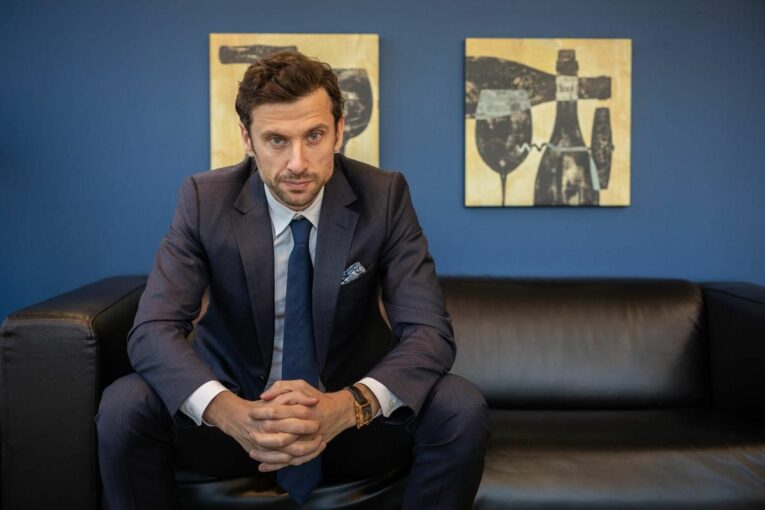
Shortly after the Kremlin invaded, Toronto immigration lawyer Lev Abramovich offered free legal advice for displaced Ukrainians seeking temporary shelter in Canada. He got tons of requests for assistance, many of them from a less-expected avenue: Russia.
Through Facebook, WhatsApp, Telegram and email, inquiries began pouring in from Ukrainians, yes, but also from Russians looking to escape Russia and come to Canada — some say they are disgusted by President Vladimir Putin’s ruthless aggression while others are deeply concerned about the collapsing economy and future of the country under an increasingly authoritative regime.
“This war was shocking for many Russians. I’ve seen the measures announced by the government with respect to the criminalization of speech and measures designed to stop independent thinking and stop independent reporting. Really, they’re draconian laws designed to quell unrest,” said Abramovich, who is of Russian descent and speaks the language.
“And then the sanctions started being introduced. A segment of the population, which is sort of younger and educated, realize that Russia is increasingly getting close to sort of North Korea and the level of isolation. There’s fear. There’s anxiety.”
Immigration lawyers are reporting a surge of interests among Russians about coming to Canada as students, foreign workers or permanent residents. Some lawyers representing already pending immigration applicants, meanwhile, are concerned about how their files would be affected by Canada and Russia’s now-strained relationship.
Polina Elizarova, another Toronto immigration lawyer whose firm has been helping Ukrainians navigate the immigration system, said she has received dozens of inquiries so far from Russians in Russia as well as those now abroad in Armenia, Turkey, Georgia and Mexico, where they don’t require visas and can stay temporarily.
Most inquirers are looking for fast-track options, which is not easy because applicants are all subject to biometrics, language test and background checks.
So far, Ottawa has not followed some European countries such as Greece, Iceland and Latvia by ceasing to accept visa applications from Russians or even revoking their residency permits, said Elizarova. However, Canadian visa processing takes time and there are plenty of logistical obstacles, given the limited flights out of Russia as well as the economic sanctions that have made e-payments and transfers of funds to simply hire an immigration lawyer here impossible.
“The situation in Russia is changing very fast. The economy is collapsing. People who have savings in Russian currency are losing money every day,” said Elizarova, who is Russian but whose husband is Ukrainian.
In recent years, Canada has not received a lot of permanent residents from Russia — about 2,200 a year between 2015 and 2019, before the pandemic — because the economy there was improving steadily.
Now, with Russian banks being banned from international money and security transfers through the Society for Worldwide Interbank Financial Telecommunications system, many global companies including Mastercard and Visa, have suspended and withdrawn from operations in Russia.
“Three months ago, there were McDonald’s in Russia and whatever franchises and all the big businesses and consulting firms had people there. Three months later, things are closing up,” said Toronto immigration lawyer David Garson, who has also received a rising number of inquiries from Russians about coming to Canada.
“People are upset about the morality of the situation and as well, the long-term effect on their country, on their reputation and their ability to function. They now have come from a country that is, at this point, an outlier in world opinion. Your future may not be great.”
Garson agrees with his colleagues that there just isn’t a fast way out for the Russians, who need to get a visa to visit any western country, even public opponents of the Russian invasion, who could make a refugee claim on the grounds that they’re persecuted for their political opinions or if they refused to serve in the military and participate in the war.
“Not only do Russian nationals need a visa, they need biometrics and background checks. I’m assumingthe background checks will be very closely monitored now,” Garson said.
“Canada is going to be extremely careful with regard to processing and the background checks will be enhanced for Russia.”
In the long run, as a result of the country’s military aggression in Ukraine, he expects more skilled Russians will look to leave — a brain drain.
“It depends on how the war goes and if Russia is going to be governed in a different manner or if there’s peace made, then we have a tendency, as time goes on, to be forgetful and forgiving,” he said. “But if this continues and is expanded, it will be an issue.”
Just last week, Abramovich had a successful Russian businesswoman in his office for consultation and the woman here on a visitor visa was exploring her options to stay in Canada.
“They’re living in an increasingly authoritarian system with a very stagnant economy. I think the brain drain could be quite significant. And ultimately, how many people leave will depend on their ability to actually get a visa,” said Abramovich, whose immigration inquiries from Russian nationals have seen a tenfold increase the last couple of weeks.
“Many Russians have suffered as a result of this war, as a result of Putin’s actions. There’s a lot of animosity toward Russia and some of which translates to ordinary Russians. People who do not support this regime are trapped.”
You can read more of the news on source




